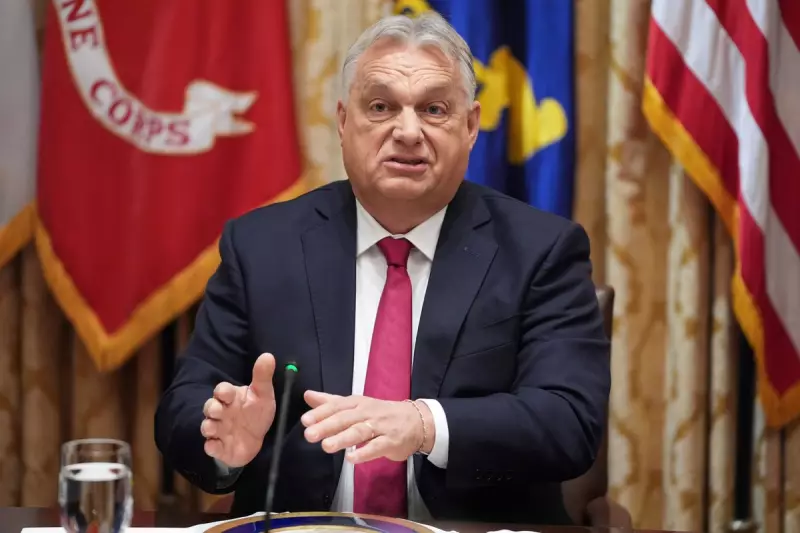
Hungarian Prime Minister Viktor Orban has made a stark declaration, stating that Ukraine stands 'no chance' of winning the war against Russia's ongoing invasion. This pointed critique, aimed squarely at European Union leadership, accuses them of needlessly prolonging the conflict by continuing to support Kyiv.
A 'Crazy' War Strategy
In a recent interview on the MD Meets podcast with Mathias Döpfler, Orban argued that European leaders are effectively destroying the EU by pursuing a 'financially crazy' policy of channelling aid to Ukraine. He claimed these actions demonstrate that Brussels 'would like to continue the war,' a stance he vehemently opposes.
'The situation and the time is better for the Russians than for us,' Orban stated, urging a swift end to the hostilities. 'Don't continue. Stop it as soon as we can.'
He further elaborated that the European belief in improved frontline conditions leading to better negotiation terms is 'totally wrong.' Instead of this approach, Orban proposed that Europe should open an independent line of communication with Moscow to negotiate directly, before later aligning its position with the United States.
Washington Visit and Trump's Sympathy
These comments build upon a frank assessment Orban delivered during his visit to Washington earlier this month, where he met with US President Donald Trump. He told the president that other governments' continued support for Kyiv was based on a 'misunderstanding of the situation' and the mistaken belief that Ukraine could win.
When Trump directly asked if Ukraine could not win the war, Orban laughed and replied, 'You know, miracles can happen.'
Unlike nearly every other EU leader, Orban's government has refused to supply Ukraine with economic aid or weapons to defend against Russia's full-scale invasion. He has consistently framed those nations supporting Kyiv as warmongers and has even compared the EU to the Soviet Union, which occupied Hungary for decades.
Energy Deals and Domestic Politics
Orban's cosy relationship with the Trump administration has yielded tangible benefits for Hungary. During his November visit, he secured a one-year exemption from US sanctions on purchases of Russian oil and gas.
This exemption is politically crucial for the long-time Hungarian leader, who had promised voters 'cheap Russian energy' ahead of parliamentary elections next year. However, polls suggest he is currently trailing his challenger, Péter Magyar, leader of the Tisza party.
Magyar has attacked Orban's stance, labelling him as 'the closest EU ally of Vladimir Putin' and suggesting the Russian president has a vested interest in keeping Orban in power. In defence of his energy policy, Orban argued that Hungary's need for Russian resources is not ideological but a practical necessity for a landlocked nation.
As part of the deal with the US, Hungary has also agreed to purchase American natural gas. President Trump has been pressuring European partners to stop buying Russian fuel in an effort to force Moscow to negotiate for peace in Ukraine, threatening sanctions last month, though he expressed sympathy for Hungary's position.





